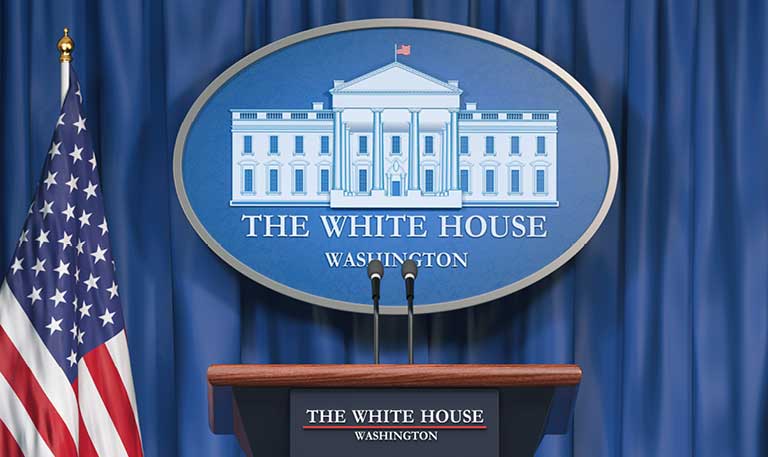
The Cancer Moonshot: a CHEST leader’s perspective
The Cancer Moonshot is a White House initiative to bring renewed leadership to the fight against cancer.
Since the initial program launch in 2016, progress has been made toward the three goals: to accelerate scientific discovery, foster greater collaboration, and improve the sharing of cancer data.
Early in 2022, President Biden announced two new goals: to reduce the cancer death rate by half within 25 years and improve the lives of people with cancer and cancer survivors.
When the White House hosted a forum in early June, CHEST leader, Frank Leone, MD, FCCP, Chair of the Tobacco/Vaping Work Group for the CHEST Health Policy and Advocacy Committee, was present for the discussion. The focus was on the largest single driver of cancer deaths in this country: smoking.
“It is great that CHEST is now at the table as active participants in the process of forming and checking in on initiatives related to public health,” Dr. Leone said. “The [Cancer] Moonshot didn't cure cancer like it aimed to—that was sort of an unattainable goal—but it made a lot of big differences in the way the country approaches the problem of cancer, and this served as a checking point for experts from a variety of backgrounds to provide feedback about the good, the bad, and the ugly of their framework.”
Dr. Leone left the forum feeling inspired by the conversation but also aware of the scope and depth of the problem and the tremendous task at hand.
“The federal government is really bringing some very sophisticated resources to try and increase access, accessibility, and effectiveness of interventions around tobacco dependence,” Dr. Leone said. “I see the detrimental impacts of tobacco use in the clinic on a daily basis, but participating in a federal program really drives home the size of the tobacco dependence problem.”
Despite the herculean task of eliminating lung cancer deaths, Dr. Leone is encouraged by the level of commitment from the participants in the room, including administration officials, community and patient advocates, private sector leaders, researchers, public health workers, and health care providers, such as the Center for Black Health & Equity.
View the full recording of the Cancer Moonshot forum »